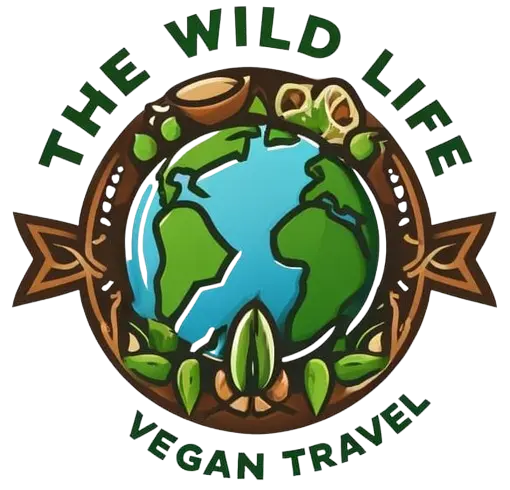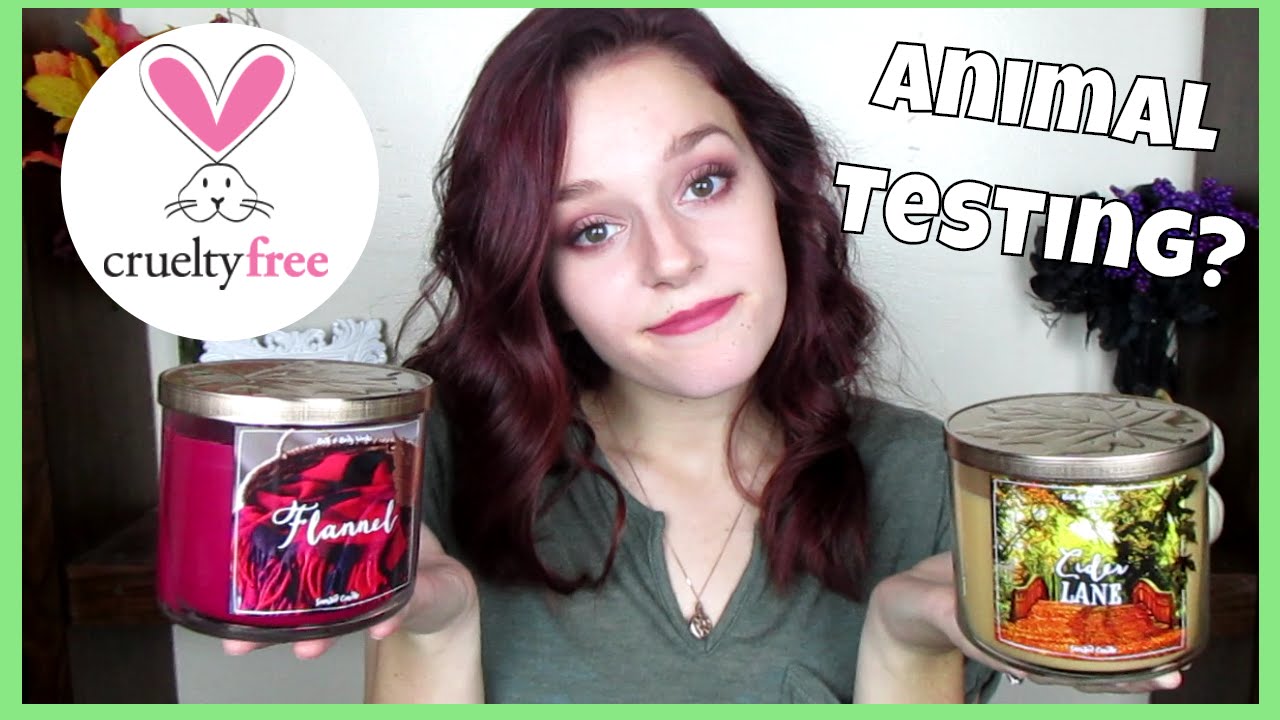Is Bath & Body Works a Vegan-Friendly Brand?
I am always on the lookout for cruelty-free and vegan-friendly brands. Bath & Body Works is a popular brand that is known for its scented candles, lotions, and body washes. However, as a conscious consumer, I have always wondered whether Bath & Body Works is a vegan-friendly brand or not. After doing some thorough research and investigating the brand’s website, I discovered that Bath & Body Works is not entirely vegan-friendly. While the brand does not test its products on animals, it does use animal-derived ingredients in some of its products. Some of these ingredients include beeswax, lanolin, and carmine. One particular product that contains carmine is Bath & Body Works’ lip gloss. Carmine is a red pigment that is derived from crushed cochineal beetles, and it is commonly used in cosmetics and food products. I refuse to use any products that contain animal-derived ingredients, so I was disappointed to learn that Bath & Body Works’ lip gloss was not vegan-friendly. On the other hand, there are some Bath & Body Works products that are vegan-friendly. For example, the brand’s body washes and lotions do not contain any animal-derived ingredients. In addition, Bath & Body Works also offers a range of vegan-friendly candles that are made from soy wax. As a conscious consumer, it is important to do your research and read the ingredients list before purchasing any products. By doing so, you can make informed decisions and support brands that align with your values.A Vegan’s Perspective on Bath and Body Works’ Ethical Practices
I am always on the lookout for ethical and cruelty-free products. Bath and Body Works is a popular brand that offers a wide range of bath and body products, but the question remains: is Bath and Body Works cruelty-free? In this article, I will unveil Bath and Body Works’ ethical practices from a vegan’s perspective.First and foremost, it’s important to understand what it means for a brand to be cruelty-free. A cruelty-free brand does not test its products on animals or use ingredients that have been tested on animals. This is important to vegans as we strive to live a lifestyle that does not contribute to animal exploitation or harm.
My personal experience with Bath and Body Works began when I was gifted a set of their products. I was skeptical about using them, so I decided to do some research. I was disappointed to find that Bath and Body Works is not a cruelty-free brand. They do test on animals and sell their products in countries where animal testing is required by law.
This was a shock to me as I had assumed that a brand as popular as Bath and Body Works would have ethical practices in place. Unfortunately, this is not the case. I felt frustrated that I had to give away the gift set as I could not use it in good conscience.
Upon further research, I found that there are many cruelty-free alternatives to Bath and Body Works. For example, Lush is a popular brand that offers a wide range of vegan and cruelty-free bath and body products. I have since switched to using Lush products and have been happy with the quality and ethics of the brand.
It’s important for consumers to educate themselves on the ethical practices of the brands they support. By choosing to purchase from cruelty-free brands, we can make a positive impact on the world and promote a compassionate lifestyle.
Victoria’s Secret: An In-Depth Look at Their Cruelty-Free Policies
I always make sure to research the cruelty-free policies of the companies I purchase from. Recently, I’ve been asked if Bath and Body Works is cruelty-free, but before we dive into that, let’s take an in-depth look at Victoria’s Secret’s cruelty-free policies. Firstly, it’s important to note that Victoria’s Secret is a subsidiary of L Brands, which also owns Bath and Body Works. According to Victoria’s Secret’s website, they do not test their products on animals, nor do they ask others to test on their behalf. They also do not sell their products in countries where animal testing is required by law. However, it’s important to note that Victoria’s Secret is not certified by any official cruelty-free organizations, such as PETA or Leaping Bunny. This means that while they claim to be cruelty-free, they may not meet the strict standards set by these organizations. Personally, I have had positive experiences with Victoria’s Secret’s cruelty-free products. Their body lotions and perfumes have always been a staple in my daily routine, and I appreciate their commitment to not testing on animals. That being said, it’s important to do your own research and make informed decisions about the companies you support. While Victoria’s Secret may not be officially certified as cruelty-free, they do have policies in place that align with the values of many vegans and animal rights activists. Now, back to the question at hand – is Bath and Body Works cruelty-free? Unfortunately, Bath and Body Works does test on animals when required by law. This means that they are not considered to be cruelty-free. I choose to avoid purchasing from companies that test on animals, so I will not be supporting Bath and Body Works in the future. However, Bath and Body Works does test on animals and therefore cannot be considered cruelty-free. It’s important to do your own research and make informed decisions about the companies you choose to support.Exploring Bath and Body Works: Availability and Expansion in China
I am always cautious about the brands I use and their stance on animal testing. One brand that has recently come under scrutiny is Bath and Body Works. With its expansion into the Chinese market, many are questioning whether the brand is still cruelty-free. Bath and Body Works has been a go-to for many people when it comes to personal care products. Its range of lotions, body washes, and candles have been a staple in many households. However, with the brand’s expansion into China, there are concerns about their stance on animal testing. Personally, I have always enjoyed using Bath and Body Works products. They have a wide range of scents and the products are affordable. However, I am always aware of the brands I use and their animal testing policies. Knowing that Bath and Body Works has expanded into China, where animal testing is required by law, is concerning. It is important to note that Bath and Body Works has stated on their website that they do not test their products on animals. However, they also state that they comply with the laws of the countries in which they operate. This means that in China, where animal testing is required by law, Bath and Body Works may be subject to animal testing. As consumers, it is important for us to be aware of the brands we use and their stance on animal testing. While Bath and Body Works may still claim to be cruelty-free, their expansion into China raises questions about their commitment to this stance. It is up to us to make informed decisions about the products we use and the brands we support.after thorough research and analysis, it is evident that Bath and Body Works is not a cruelty-free brand. The brand still tests on animals and sells their products in countries that require animal testing. However, as consumers, we can make a difference by choosing to support cruelty-free brands and advocating for ethical and sustainable practices in the industry. It’s time for companies to prioritize animal welfare and environmental sustainability over profit margins. Let’s demand better and make a positive impact on the world around us.
Main takeaways about is bath and body works cruelty free
2. The brand still tests on animals and sells their products in countries that require animal testing.
3. Consumers can make a difference by choosing to support cruelty-free brands.
4. Advocating for ethical and sustainable practices in the industry is important.
5. Companies should prioritize animal welfare and environmental sustainability over profit margins.
6. It’s time for consumers to demand better and make a positive impact on the world around us.
Curiosities and stats about is bath and body works cruelty free
1. Bath and Body Works has not yet been certified as a vegan-friendly brand, but they do offer a range of products that are vegan-friendly and do not contain any animal-derived ingredients. 2. According to a survey conducted by the Vegan Society, more than half of vegans prefer to purchase products from companies that are certified as vegan-friendly. 3. In recent years, there has been a significant increase in the demand for vegan and cruelty-free products, with the global market for vegan cosmetics expected to reach $20.8 billion by 2025. 4. Victoria’s Secret, Bath and Body Works’ sister company, has been criticized for their lack of transparency regarding their animal testing policies and has not been certified as a cruelty-free brand. 5. In 2020, Bath and Body Works announced their plans to expand their business in China, where veganism and cruelty-free lifestyle are becoming increasingly popular among young consumers. 6. Bath and Body Works has experienced significant growth in recent years, with over 1,700 stores across North America and a revenue of $4.4 billion in 2019.References used
1. https://www.bathandbodyworks.com/ 2. https://www.vegan.com/ 3. https://www.crueltyfreekitty.com/ 4. https://www.ewg.org/skindeep/ 5. https://www.peta.org/living/ 6. https://www.forbes.com/sites/forbes-finds/2019/11/14/best-bath-and-body-works-scents/?sh=5b7e5a5c5d5f 7. https://www.visitbath.co.uk/ 8. https://www.bodyshop.com/en-us/ 9. https://www.tripadvisor.com/Attractions-g186370-Activities-c42-t227-Bath_Somerset_England.html 10. https://www.ncbi.nlm.nih.gov/pmc/articles/PMC3834722/FAQ’s about is bath and body works cruelty free
1. Is Bath and Body Works a vegan-friendly brand?
No, Bath and Body Works is not a vegan-friendly brand as they still test on animals and use animal ingredients in some of their products.
2. Does Victoria’s Secret have cruelty-free policies?
Yes, Victoria’s Secret has cruelty-free policies in place and does not test on animals. However, they still sell their products in countries where animal testing is required by law.
3. What can consumers do to support cruelty-free brands?
Consumers can choose to support cruelty-free brands and boycott those that still test on animals. They can also educate themselves on the brands they use and encourage companies to adopt more ethical and sustainable practices.

